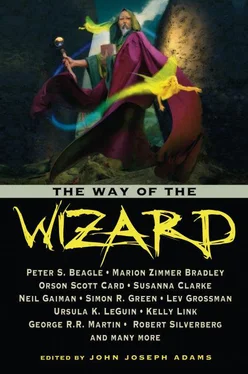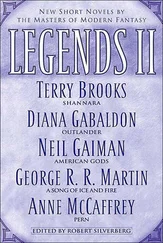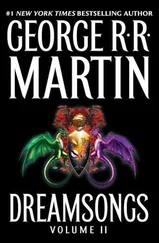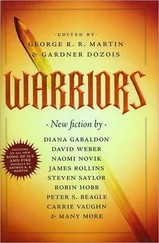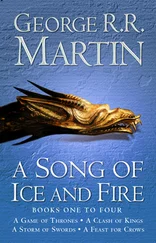“I know,” he said. “They were all things I once thought I’d wish for when I found you. You gave them to me without waiting for me to wish for them. But my Wish is still hanging over my head, demanding to be used.”
“You don’t have to listen to it.”
“I do. It’s the only thing I own that I earned myself, that I can truly say you didn’t give me. And if I don’t use it, then everything I’ve done means nothing.”
“Why don’t you just wish that you can be content to always stay here with me, and love me forever, as I’ll love you forever?”
He turned and faced her, seeing her forlorn and lost by the door of their cottage, wanting her more than everything he’d ever wanted before, feeling his own heart break at the knowledge that he’d caused the sorrow welling in her eyes. And for the first time he understood that they’d endured this moment hundreds or even thousands of times before, for as long as the sun had been a fire in the sky.
He said, “I’m sorry. I can’t wish for that. I wish for the one thing I lost when I came here. A purpose. Something to struggle for. A reason to deserve everything you give me, whenever I manage to find my way back.”
She granted his Wish, then fell to her knees and sobbed: not the tears of an omnipotent creature who controlled the earth and the stars, and could have had everything she ever wanted, but the tears of a lonely little girl who couldn’t.
When she rose again, she approached the waters of eternal youth, and sat down beside them, knowing that she wouldn’t feel their touch again until the inevitable day, still a lifetime away, when he would, all too briefly, return to her.
Someday, she swore, she’d make him so happy that he’d never Wish to leave.
Until then—
The journeyer was still a young man when he embarked on his search for the all-powerful witch Cerile.
He was bent and gray-haired a lifetime later when he found a map to her home in the tomb of the forgotten kings…
Yoon Ha Lee’s work has appeared in Lightspeed, The Magazine of Fantasy & Science Fiction, Clarkesworld, Fantasy Magazine, Ideomancer, Lady Churchill’s Rosebud Wristlet, Farrago’s Wainscot, Beneath Ceaseless Skies, Electric Velocipede, and Sybil’s Garage. She’s also appeared in the anthologies Twenty Epics, Japanese Dreams, In Lands That Never Were, Year’s Best Fantasy #6 , and Science Fiction: The Best of 2002. Her poetry has appeared in such venues as Jabberwocky, Strange Horizons, Star*Line, Mythic Delirium, and Goblin Fruit . Learn more at yoonhalee.com.
Our next story involves some math. Wait, don’t go! It’s also got demon armies, a lie-detecting magic sword, bitter family drama, and all that good stuff, we promise. But there’s some math too, or at least, mathematical concepts.
Yoon Ha Lee is a former high school math teacher, and her work often incorporates aspects of her training. Most of us tend to imagine magic as an easy path to power, a way of getting something for nothing, and we’re enticed by the notion of flying through the air and hurling fireballs the moment we pick up our first wand. We tend to think of magic as something at which we would be naturally and effortlessly talented. But what if learning magic was a lot like learning math? What if you actually did have to learn a lot of math in order to perform magic? How many of us would stick with it?
Our next story presents a world in which magic and mathematics are inextricably linked, and in which solving equations is a matter of life or death. But don’t worry, you won’t need any calculus or trigonometry to enjoy this story. And no, this won’t be on the test.
Counting the Shapes
Yoon Ha Lee
How many shapes of pain are there?
Are any topologically equivalent?
And is one of them death?
Biantha woke to a heavy knocking on the door and found her face pressed against a book’s musty pages. She sat up and brushed her pale hair out of her face, trying to discern a pattern to the knocking and finding that the simplest one was impatience. Then she got to her feet and opened the door, since her warding spell had given her no warning of an unfriendly presence outside. Besides, it would be a little longer before the demons reached Evergard.
“Took your time answering the door, didn’t you, Lady Biantha?” Evergard’s gray-haired lord, Vathré, scowled at her. Without asking for permission, which he never did anyway, he strode past her to sweep his eyes over the flurry of papers that covered her desk. “You’d think that, after years of glancing at your work, I’d understand it.”
“Some of the conjectures are probably gibberish anyway.” She smiled at him, guessing that what frustrated him had little to do with her or the theorems that made her spells possible. Vathré visited her when he needed an ear detached from court intrigues. “What troubles you this time, my lord?”
He appropriated her one extra chair and gestured for her to sit at the desk, which she did, letting her smile fade. “We haven’t much longer, Biantha. The demons have already overrun Rix Pass. No one agrees on when they’ll get here. The astrologer refused to consult the stars, which is a first — claimed he didn’t want to see even an iffy prediction—” Vathré looked away from her. “My best guess is that the demons will be here within a month. They still have to march, overwhelming army or no.”
Biantha nodded. Horses barely tolerated demon-scent and went mad if forced to carry demons. “And you came to me for battle spells?” She could not keep the bitterness from her voice. The one time she had killed with a spell had been for a child’s sake. It had not helped the child, as far as she knew.
“Do you have any battle spells?” he asked gravely.
“Not many.” She leaned over and tapped the nearest pile of paper. “I was in the middle of this proof when I discovered that I’d have to review one of Yverry’s theorems. I fell asleep trying to find it. Give me a few days and I can set up a battle spell that will kill any demons you’ve already managed to wound.” Biantha saw the weariness in the lord’s green eyes and flushed. “It isn’t much, I know.”
“That helps, but it isn’t what I came for.”
Dread opened at the pit of her stomach. “The Prophecy.”
Vathré inclined his head.
“I’ve tried to pry some sense out of it ever since I learned of it, you know.” She rubbed her eyes. “The poetry translates into shapes and equations that are simply intractable. I’ve tried every kind of analysis and transformation I know. If there’s any hope in the rhymes, the rhythms, the ambiguities, don’t ask me to show you where it is. You’d do better consulting the minstrels for a lecture on symbolism.”
“I don’t trust the minstrels.” His brows drew together. “And any time I consult the other magicians, I get too many uncertainties to untangle. The seers and healers are hopeless. The astrologer gets headaches trying to determine where to start. The cartomancer gives me a dozen different possibilities each time she casts the cards. As far as the Prophecy is concerned, yours is the only kind of magic I can trust.”
Biantha smiled wanly. “Which is why, of course, it’s so limited.” Sometimes she envied the astrologer, the cartomancer, the enchanters, the healers, the seers — magicians whose powers were less reliable but more versatile. “I’ll work on it, my lord.”
“A month,” he reminded her.
She hesitated. “Have you declared your heir yet?”
Vathré eyed her. “Not you, too?”
She swallowed. “If you die, my lord, someone must carry on. Don’t leave the succession in doubt. A problem may have several solutions, but some solutions can still be wrong.”
Читать дальше
